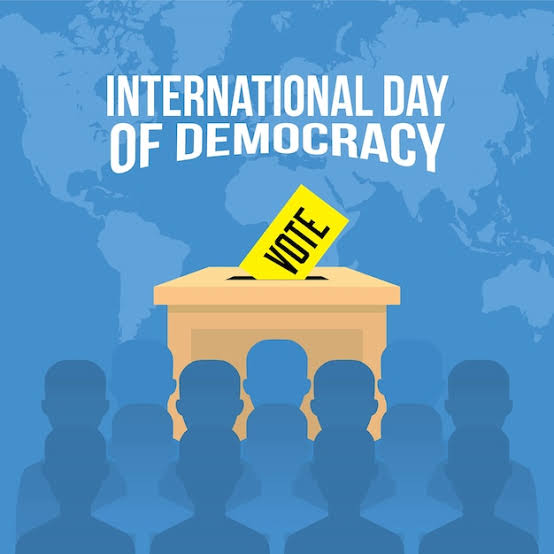International day of democracy: Time for a re-think of democratic practice in Africa
3 min read
International democracy day
By Paul Ejime
Every year on the 15th of September, the World marks the International Day of Democracy.
It is celebrated to strengthen democracy and highlight its values and principles.
The theme this year is the “Importance of media freedom to democracy, peace, and delivering on the Sustainable Development Goals.”
According to UNESCO, the Day serves as an opportunity to assess the status of democracies in the world. It also highlights the crucial role of parliaments and to celebrate their capability to deliver justice, development, human rights, and peace.
The Day has been celebrated since 2008 following a resolution passed by the United Nations General Assembly in 2007.
The experimentation of democracy in Africa has produced mixed results, often characterized by divisive political contestations and electoral violence.
Election is only part of the democratic process, but in Africa, it approximates and even overshadows democracy.
The political class weaponise ethnicity, poverty, religion, ignorance and high rates of illiteracy and unemployment to silence and exploit the masses, while they steal and appropriate the Commonwealth to themselves, their clans and family members.
Massive corruption and gross mismanagement of national resources is the order of the day, coupled with suppression of opposition and the shrinking of the democratic space.
National constitutions and electoral laws are altered at random to pave way for political tenure elongation and rubber-stamp parliaments.
Having tasted power during dictatorships in many countries in the past, the military in Africa have been politicised and are staging a comeback, especially in the politically restive West Africa.
There is a telling leadership deficit and lack of vision, with most African nations going through political motions without positive movement, economic growth or development.
For lack of a better expression, analysts say: democracy is in decline in Africa.
But has there really been democracy in the first place?
Perhaps, it is time for developing countries, particularly in Africa, to take a serious look at the popular Western style democracy they are copying.
There is the urgent need for a deconstruction of the dysfunctional systems to set up a completely new system or adapt what works for each country based on its peculiarities.
Any adopted system must be anchored on the acknowledgement and respect of the basic principles of fundamental human rights, including the right to life, freedom of speech, association/assembly, political inclusivity, equal participation and representation, fairness and justice.
The media is considered as the Fourth Estate of the Realm (or unelected branch) of the governance system.
Still, the media is expected to serve as the public watch dog in holding the government and public office holders accountable to the people.
While this might be working in the Western World, the situation is different in Africa, where journalists operate under very difficult conditions, with stringent anti-media laws and other forms of strictures.
Some journalists are also known to have compromised and might continue to compromise their professional code of ethics/conducts, citing poverty, the corrupt system or the environment they operate in.
But this excuse is untenable. Like Caesar’s wife, the media and its professionals must be above board.
There are occupational hazards in every profession. There is no suggestion to take unreasonable risks, but as the conscience of society, the agenda setters and given that media/press freedom is a barometer for measuring democracy, journalists must continue to push the boundaries of freedom and fundamental human rights in the society.
All the other arms of government – the executive, legislature and the judiciary – as well as the civil society and citizens at large, must all play their parts to build and sustain human rights, freedom, justice and peace in the society.

